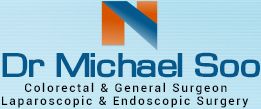All surgical procedures, however routine, have risks. I regard the primary role of a surgeon is to manage that risk.
Not all surgical conditions require an operation. In fact, I consider a competent surgeon is one who knows when NOT to operate.
Surgical procedures may be necessary in some asymptomatic patients for preventative measures.
Treatment options ought to begin with the least invasive options first.
I consider a good surgeon is one who has the following attributes –
- A good listener
- A good communicator, who involves all the stakeholders in the decision-making process
- A competent operator
- One who knows their limitations and will refer patients onto other medical professionals when necessary
- Has sound knowledge and keeps abreast with latest surgical developments and skills
The main question I contemplate whenever I see a patient is –
What is the risk of operating versus the risk of not operating on this patient ?
Surgery should only occur if
Risk of NOT operating > Risk of operating
Risk of operating on a patient
Factors I consider –
- Patient risk profile for general anaesthesia & surgery –
- Medical conditions
- Patient’s present quality of life
- Medications
- Previous surgery
- Allergies
- Pathology factors –
- How symptomatic is the pathology ?
- Is the aim of surgery curative or palliative ?
- Is the pathology potentially life threatening ?
- Is the pathology affecting one’s quality of life ?
- Is the pathology likely to progress with time ?
- Is the pathology curative or manageable by non-operative means ?
Risk of not operating
Factors I consider –
- Is the pathology likely to progress with time ?
- Is the pathology likely to become life threatening ?
- Is the patient likely to develop other risk factors (eg other medical conditions) if surgery is delayed ?






